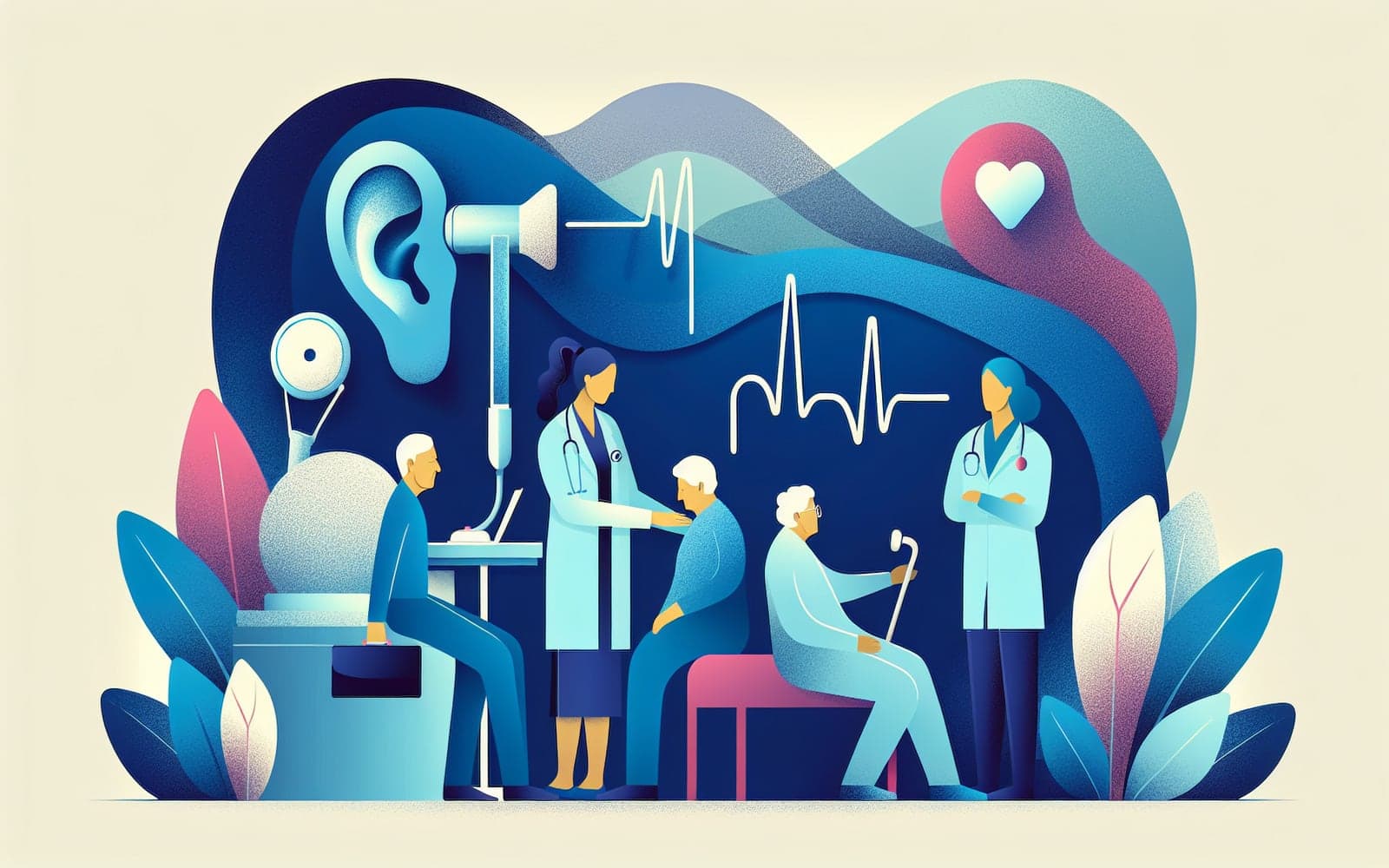How Do Doctors Diagnose Age-Related Hearing Loss?
Published: Nov 07, 2023
Age-related hearing loss can sneak up on you, but doctors have several tools to diagnose it. Understanding these tests can help you know what to expect when getting your hearing checked.
Contents
The Initial Screening
Your doctor might start with a simple screening test called the whispered voice test. They'll stand behind you and whisper a series of words or numbers, asking you to repeat them. This quick test can give a general idea of whether you're having hearing difficulties. Another quick screening tool is a questionnaire like the Hearing Handicap Inventory for the Elderly-Screening, which asks about how hearing issues affect your daily life.
Tuning Fork Tests
Tuning forks are simple metal instruments that produce a specific tone when struck. Doctors use two main tests with tuning forks: the Weber test and the Rinne test. These can help determine if hearing loss is conductive (in the outer or middle ear) or sensorineural (in the inner ear or auditory nerve). Age-related hearing loss is typically sensorineural.

The Gold Standard: Audiometry
For a detailed assessment of your hearing, you'll likely be referred for a formal audiogram. This test is performed in a soundproof booth where you wear headphones and respond to various tones. The audiologist will plot your ability to hear different frequencies and volumes on a graph. They'll also test your ability to understand speech at different volumes. This comprehensive test can diagnose presbycusis and determine its severity.
Frequently Asked Questions
No, hearing tests are painless and non-invasive.
Typically about 30 minutes to an hour.
Adults over 50 should consider testing every 3 years.
Some apps exist, but professional testing is more accurate.
Key Takeaways
Understanding how hearing loss is diagnosed can help you take control of your auditory health.
Curious about your hearing health? Chat with Doctronic to learn more about hearing tests and whether you might benefit from one.Related Articles
References
Yueh B, et al. Screening and management of adult hearing loss in primary care: clinical applications. JAMA 2003; 289:1986.
Tsai Do BS, et al. Clinical Practice Guideline: Age-Related Hearing Loss. Otolaryngol Head Neck Surg 2024; 170 Suppl 2:S1.
Always discuss health information with your healthcare provider.

